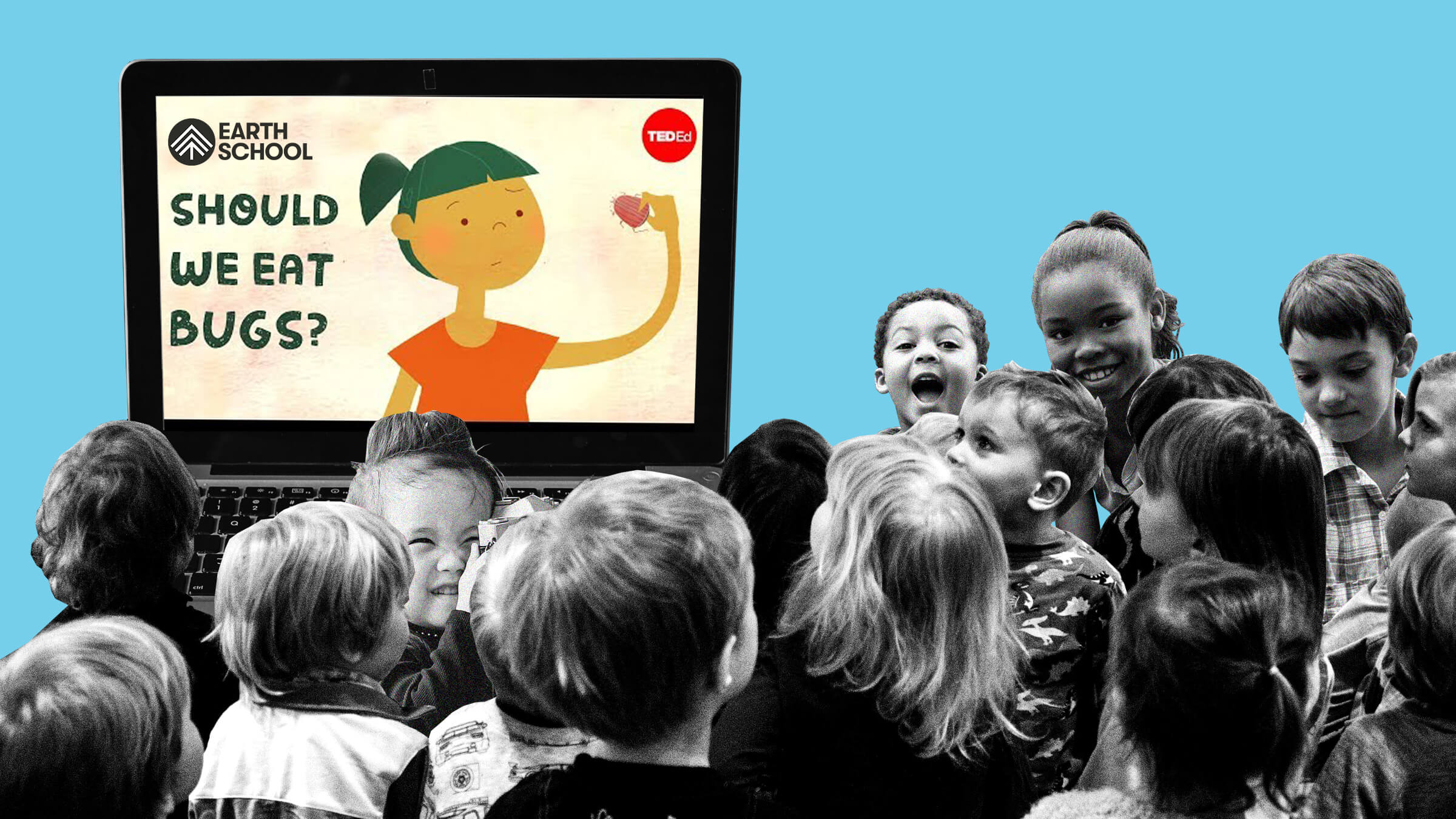This spring, the arrival of coronavirus in Finland interrupted contact teaching for over 500,000 school pupils. This prompted teachers, parents and students to seek support and inspiration for teaching and learning from materials online.
Earth School is a fascinating daily adventure through the natural world created by the UN Environment Programme (UNEP) and the TED-Ed video service. It offers pupils a chance to watch a series of animated videos and take quizzes for 30 days. Now is a good moment to enhance our understanding of the interaction between nature and humans, so that we can better prepare ourselves for things such as future pandemics.
Earth School takes a fun and interesting dive into biodiversity
The high-quality animated Earth School videos deepen our understanding of the significance of biodiversity for our well-being and illustrate how our homes and supplies of food, clothing and energy are dependent on natural resources that continue to decline. The videos explain about natural cycles and ecosystems and show how nature-based solutions can guide the way we travel around, produce food and pharmaceuticals or design buildings while respecting the earth’s carrying capacity. The productions also emphasise the importance of recycling, sorting, composting and planting of trees as smart everyday tasks that anyone can do at any time.
Finland is internationally renowned for its leading educational and training achievements. But it is a less well-known fact that Finland also has a very long and solid experience in education work related to sustainable development, and this is playing an increasingly important role as we build a carbon-neutral society based on the circular economy.
“Earth School not only shares information, but also challenges children and young people to experiment and take action.”
The Finnish contribution to the Earth School website was compiled by a number of highly experienced Finnish environmental experts and professionals in the field of education: ENO, WWF Finland, Economy and youth TAT, Dodo, Gaia and Children in Permaculture. The website also gives us an opportunity to convey Finnish competence in networking to the world in a unique way.
For example, on 22 May the Finnish-based ENO online school will challenge children and young people around the world to plant trees. On the same day, the Minister of the Environment and Climate Change, Krista Mikkonen, will explain how planting trees and protecting old forests can slow down climate change.
“Mikkonen will also reveal her favourite tree”, says Heta Heiskanen, Senior Specialist at the Ministry of the Environment.
Siiri Mäkelä, Associate Expert in Youth, Education and Advocacy at UNEP, explains the motivation behind the campaign: “In addition to having created a health and economic crisis, the coronavirus also endangers the education of millions of pupils worldwide. Together with Ted-Ed and numerous other partners, we wanted to collect high-quality environmental learning materials on a single platform and give young people a connection to nature. Through Earth School, we also wanted to help pupils’ parents, who now have to take a greater responsibility for their children’s learning. Earth School encourages young people to understand how nature and our ecosystem serve as the foundations for everything else.”
Circular economy competence is a vital skill that will be in high demand in the competitive world of business in the future. As our circular economy expertise increases, we can build a functional economic model that operates within the limits of Earth’s carrying capacity. Circular economy solutions will help us slow down climate change and safeguard biodiversity.
Together with numerous Finnish schools and educational institutions, and hundreds of teachers, Sitra has made circular economy teaching a part of the education provided in upper secondary schools, vocational schools, universities of applied sciences and universities. These seven circular economy videos were created in collaboration with the Economy and youth TAT. Now some of these videos will be made available on the TED-Ed platform where they reach children and young people all around the world. TED-Ed is a package of contents created jointly by more than 500,000 pedagogues.



Recommend
Find out more!